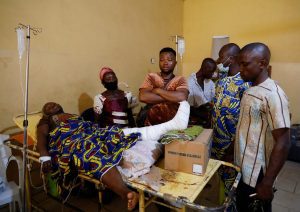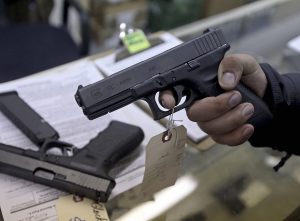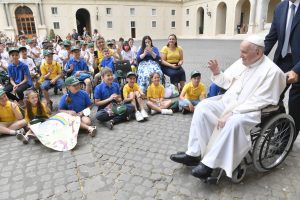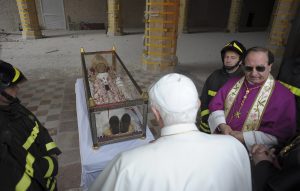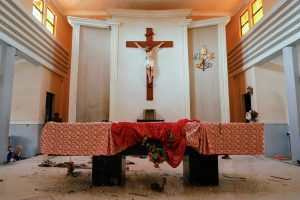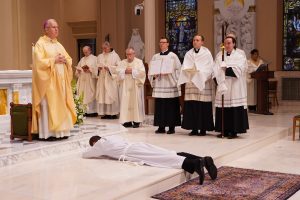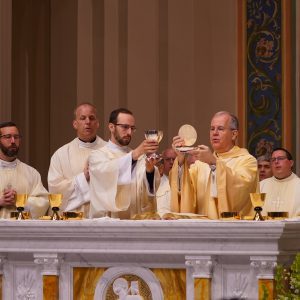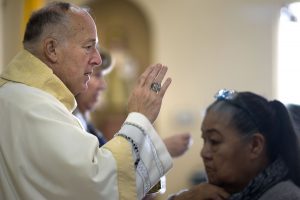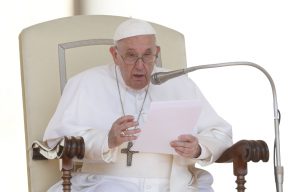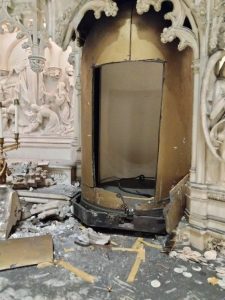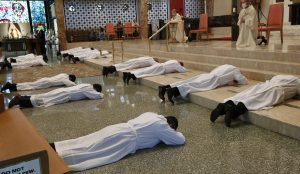
WASHINGTON (CNS) – In the Catholic Church, permanent deacons “are entrusted with the unique responsibility of bringing Christ to every corner of society,” said the chairman of the U.S. Conference of Catholic Bishops’ Committee on Clergy, Consecrated Life and Vocations.
They carry out their ministry “in imitation of Christ the servant and impelled by the spirit of charity,” said Bishop James F. Checchio of Metuchen, New Jersey.
He made the remarks on the unique role deacons have in the Catholic Church in a statement issued June 2 with the results of an annual survey that provides a portrait of the permanent diaconate in the U.S.
“By virtue of their ordination, deacons witness to Christ in the workplace, within their families and among the members of their community, especially the poor,” Bishop Checchio said. “The church is grateful to all permanent deacons who extend Christ’s mercy and healing to all those in need.”
Conducted for the USCCB by the Center for Applied Research in the Apostolate at Georgetown University since 2005, the study provides a detailed snapshot of the state of the permanent diaconate in the United States.
Findings include the percentage of active vs. nonactive deacons; the archdioceses/dioceses and eparchies with the largest number of permanent deacons; sociocultural demographics; and ministerial involvement.
With contact information provided by the National Association of Diaconate Directors and CARA’s Catholic Ministry Formation database, CARA contacted the 183 dioceses and eparchies in the United States that have an active permanent diaconate office and formation program.
Of this total, 141 responded to the survey for an overall response rate of 77%.
Some of the major findings of the report follow:
— Responding archdioceses/dioceses with the largest number of permanent deacons include Chicago, 804; Los Angeles, 498; and Joliet, Illinois, 497. Adjusting for Catholic population size, Latin-rite dioceses with the lowest ratio of Catholics per permanent deacon include Lexington, Kentucky, 477 Catholics per deacon; Amarillo, Texas, 547; Rapid City, South Dakota, 678; Pueblo, Colorado, 681; and Anchorage, Alaska, 699.
— The 138 Latin-rite archdioceses/dioceses that responded to this question report a total of 16,765 permanent deacons, both active and not active. The three eparchies that responded reported a total of 36 permanent deacons. “Extrapolating to include archdioceses/dioceses and archeparchies/eparchies that did not respond to the survey,” the report said, “it can be estimated that there were as many as 20,888 permanent deacons in the United States in 2021-2022.”
— Latin-rite archdioceses/dioceses reported having 11,746 permanent deacons active in ministry. The three eparchies reported 31 active permanent deacons. “Extrapolating to include arch/dioceses and arch/eparchies that did not respond to the survey,” the report said, “it can be estimated that there are 14,586 deacons active in ministry in the United States in 2021-2022, or about 70% of all permanent deacons.”
— During the 2021 calendar year, 458 new permanent deacons were ordained in the archdiocese/dioceses that responded to the survey. At the same time, 512 deacons retired from active ministry and another 393 deacons died. “As is the case with priests in the United States, there are not enough new permanent deacons being ordained to make up for the numbers who are retiring from active ministry and dying each year,” the report said.
— Close to all active permanent deacons — 95% — are at least 50 years old. About a fifth, or 20%, are in their 50s; two-fifths, 41%, are in their 60s; and about another two-fifths, 36%, are 70 or older.
— Nine in 10 active permanent deacons, or 93%, are currently married; 4% are widowers; and 2% have never been married.
— Seven in 10 active permanent deacons, or 72%, are non-Hispanic whites. One in five active permanent deacons, 21%, are Hispanic or Latino; 3% are Asian or Pacific Islander; and 2% are African American.
— Among permanent deacons who are financially compensated for ministry, one in five (19%) is entrusted with the pastoral care of one or more parishes; one in four (25%) works in other parish ministerial positions, such as director of religious education, youth minister; and one in seven (15%) works in parish non-ministerial positions, such as administration, business, finance.
— Seven in 10 active permanent deacons (67%) have at least a college degree. One in seven (14%) has a graduate degree in a field related to religion or ministry.
— Close to all dioceses and eparchies (98%) require an annual retreat of deacons. On average, three in four (75%) deacons participate in the retreat. Four in five responding archdioceses/dioceses (83%) provide couples retreats for deacons and their wives. Nine in 10 archdioceses/dioceses (86%) provide annual gatherings of deacons in addition to or apart from a retreat.
— Nine in 10 archdioceses/dioceses (94%) have a minimum age requirement for acceptance into the diaconate formation program — with the minimum age ranging from 28 to 60, with a median of 33.

